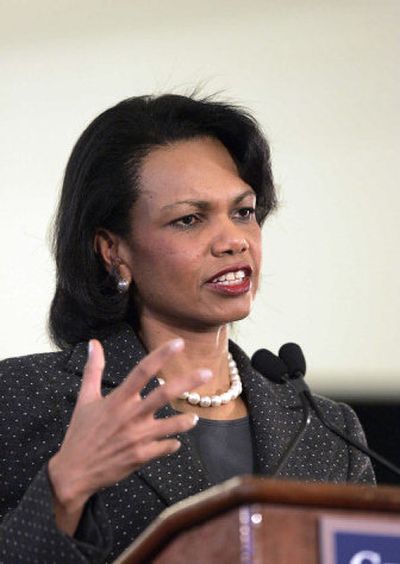Iran’s request for talks rejected

PARIS – Europe, backed by the United States, on Wednesday rejected Iran’s request for talks on its nuclear program, cranking up international pressure on Tehran to suspend uranium enrichment.
Secretary of State Condoleezza Rice said “there’s not much to talk about” until Iran halts nuclear activity. But Iran’s president accused the West of acting like the “lord of the world” in denying his country the peaceful use of the atom.
The quick dismissal of Iran’s request for a ministerial-level meeting with French, British and German negotiators focused attention on the next step: the U.S. and European push to refer Iran to the U.N. Security Council, which could impose economic and political sanctions.
Russia and China, which have veto power on the council, appeared to remain the greatest obstacles. Both nations are opposed to sanctioning a country with which they have strong economic and strategic ties. In recent days, they have expressed reluctance even to the idea of referral.
The national security adviser of Israel, which strongly supports hauling Iran before the Security Council, was in Moscow on Wednesday to make his country’s case, as was the French foreign minister. Tehran’s ambassador to Russia urged the Kremlin to resist what he called pressure from other countries.
Even if there were consensus on sanctions, the five permanent Security Council members would be faced with a dilemma. Placing an embargo on Iran’s oil exports would hurt Tehran, which earns most of its revenues from energy sales, but also roil world crude markets, spiking prices upward.